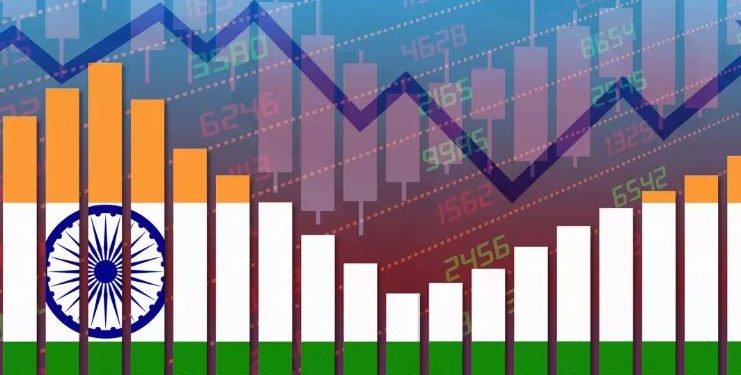Mumbai: Leading economists have pencilled in a high 13-15.7 per cent uptick in the economy in the first quarter of 2022-23 with an upward bias.
Soumya Kanti Ghosh, the group chief economic adviser at State Bank of India, Tuesday said he expects the GDP to clip past 15.7 per cent in the first quarter with more chances of the final numbers printing in higher, while Aditi Nayar, the chief economist at the rating agency Icra, said the economy will grow much lower at 13 per cent in the June quarter.
The national statistical office will announce the first quarter GDP numbers later next week.
While GDP contracted by 23.9 per cent in June 2020 due to the first wave of the pandemic, the same had given a higher boost in June 2021 clipping at 20.1 per cent, despite the period being more devastating in terms of loss of lives from the second wave of COVID-19.
The Reserve Bank-led monetary policy committee in the August 5 policy review projected the economy to grow 16.2 per cent in the April-June quarter.
According to SBI Research, the GDP is expected to print 15.7 per cent in Q1, with a large possibility of an upward bias. If this materialises, it expects upsides to the central bank’s growth projections of 7.2 per cent for FY23.
The high base effect along with the impact of the heatwave on wheat output, geo-political issues and elevated commodity prices on demand/margins will temper the pace of growth in Q1 at 13 per cent, Nayar of Icra said, adding the gross value added to come in at 12.6 per cent.
Icra expects sectoral growth to be driven by the services sector which will log in 17-19 per cent growth, followed by the industry (9-11 per cent).
The SBI report said that of the 41 high frequency leading indicators that it tracks, as much as 89 per cent accelerated in Q1 compared to 75 per cent in Q1FY22, indicating strong and broad-based growth momentum. In Q2FY23, leading indicators continue to accelerate with 81 per cent of the indicators, for which data is available showing an uptrend over Q1FY22.
Importantly, private final consumption expenditure in real terms that had declined significantly by Rs 4.77 lakh crore in Q1FY21 owing to the pandemic recovered by 46 per cent in Q1FY22, Ghosh said.
The remaining 54 per cent pent up demand recovered in Q1FY23 would also have clipped at over 54 per cent, indicating a strong recovery in consumer demand, specifically in services, which has helped in the likely strong Q1FY23 numbers.
This also accounts for 6.8 per cent of the total GDP contribution in Q1FY23.
While Nayar sees the economy still being impacted by the ongoing war in Ukraine, which has entered the sixth month now, Ghosh sees the war impact on the global macroeconomy for now seem to have moderated, though he admits that the conflict is influencing direct trade, energy and commodity prices, confidence, and policy responses, particularly in China.
According to Icra, of late there has been a shift in demand towards contact-intensive services from discretionary consumer goods for the mid-to-higher income groups.
This, along with the emerging cautiousness in export demand, and the impact of high commodity prices on volume and margin for industries are likely to result in a relatively moderate industrial growth.
Additionally, the impact of the heat wave on wheat output is likely to lead to lower growth in the agricultural sector in Q1.
Overall, Nayar expects the June quarter growth to trail the 16.2 per cent projected by the monetary policy committee of the Reserve Bank.
She also feels that the recent moderation in commodity prices is sustained, it will lead to lower inflationary as well as margin pressures and translate into improved demand for discretionary goods and higher value-added growth.
Based on this, she anticipates Q2 growth to print in at 6.5-7 per cent exceeding the MPC’s forecast of 6.2 per cent for that quarter.
PTI






































